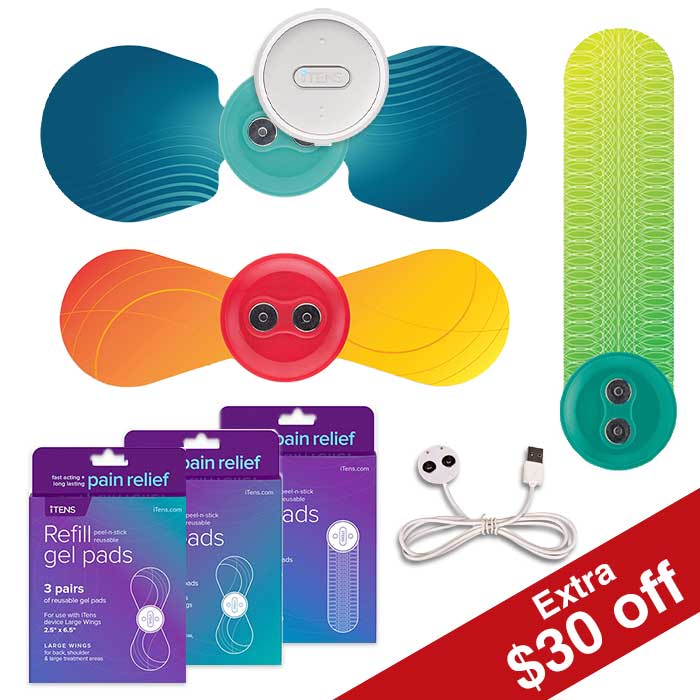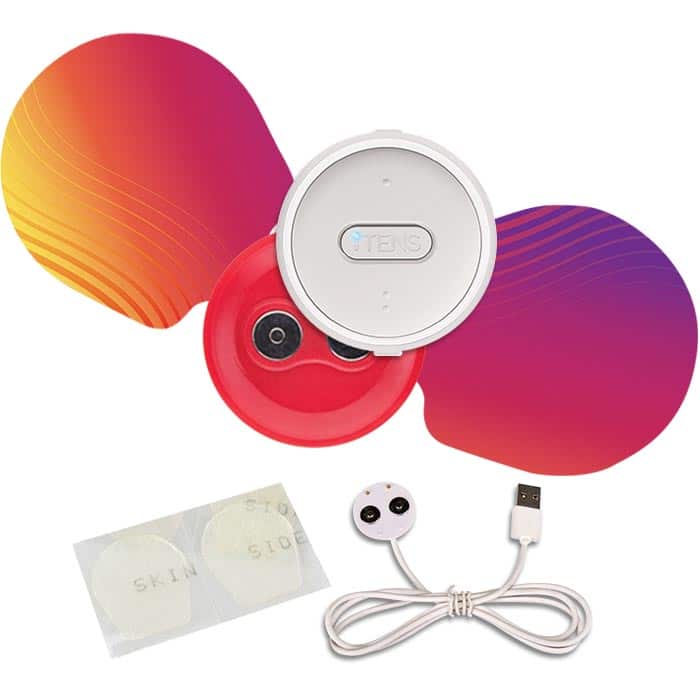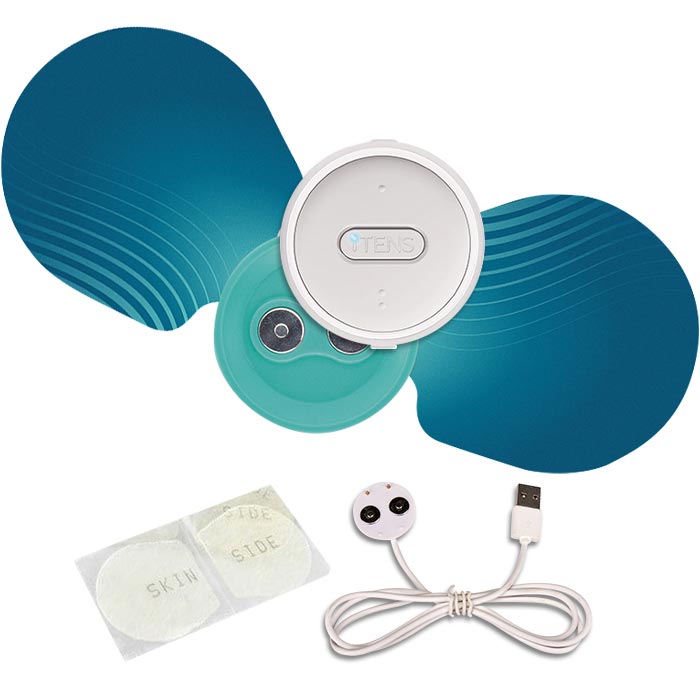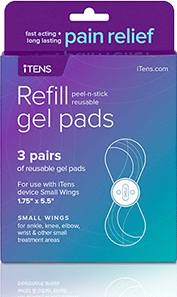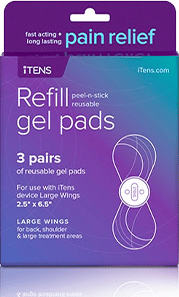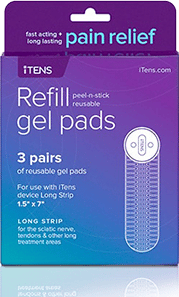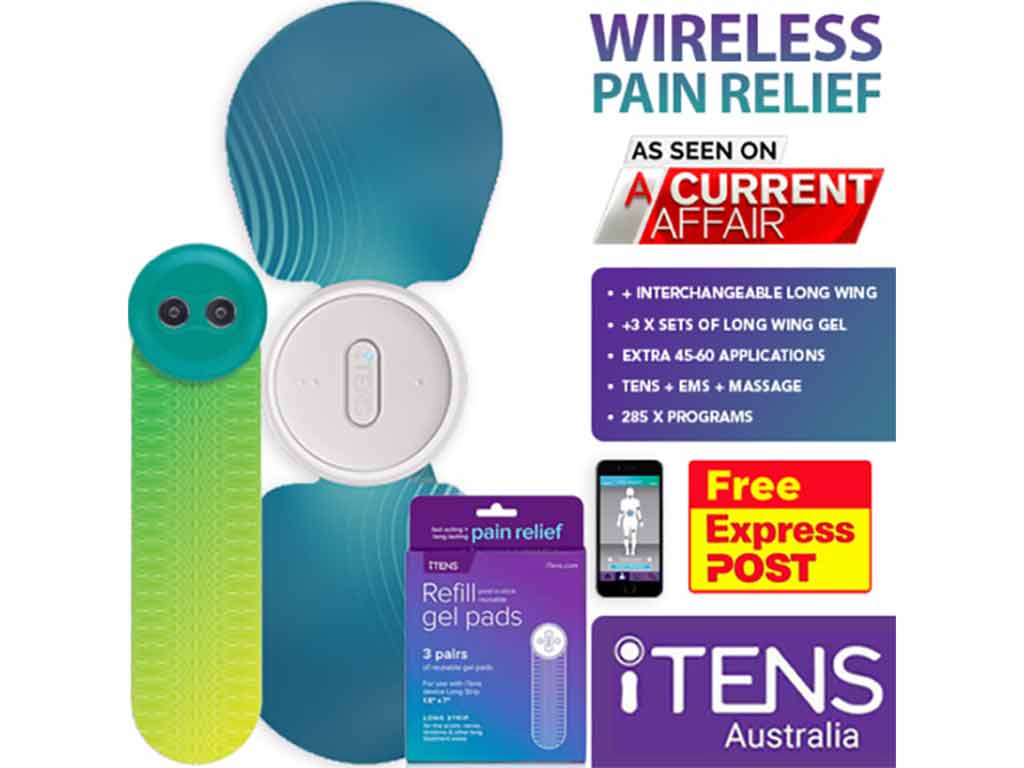
Transcutaneous Electrical Nerve Stimulation (TENS) units are low-voltage electrotherapy devices that deliver electrical impulses for pain relief. It uses high and low-frequency stimulation to block pain signals from reaching the brain and trigger endorphin production. Some people may wish to use a TENS unit with metal implants. However, it is crucial to consult a health professional before undergoing electrotherapy. This is because electrical stimulation may damage the implants. Alternatively, acupuncture, physical therapy, and pain medicines are methods for relieving pain.
Generally, there are two types of metal implants. Active and passive implants like pacemakers and joint replacements may experience damage due to electrical impulses. However, there are cases where those with passive implants may use TENS. This is why people must consult a healthcare provider to ensure safety. This article will present the definition of TENS, how it works, the importance of seeking medical advice before using it, and alternative treatment methods.
TENS Unit with Metal Implant: Defining TENS and How it Works
It is vital to understand what TENS is before using a TENS unit with metal implants. A TENS machine is an electrotherapy device that uses electrical stimulation to relieve pain. It delivers electrical currents through externally applied electrode pads. Typically, TENS machines have a frequency range of 1-150 Hz and an intensity range of 0-80 mAmp. These settings are adjusted to suit the condition of the user. Using a
Using high-frequency stimulation triggers spinal nerve cells to block pain signals from reaching the brain. This is the mechanism described in the Gate Control Theory of Pain. Some people feel the effects within 30 minutes of the session. It is suitable for acute pain, and the effects last a few minutes.
On the other hand, low-frequency stimulation triggers the production of endorphins. These are natural painkillers that build up to relieve pain in the area. Moreover, they reduce inflammation and improve moods. This setting is suitable for chronic pain. Its effects may last hours after the session. In addition, people may use it up to four times daily to relieve their pain.
Types of Pain It Can Treat
TENS therapy is an effective method of pain relief. Here are the types of it can treat
- Chronic pain is pain that lasts over six months. Often, it is caused by underlying health conditions. One example is arthritis. This ailment is the inflammation of one or more joints. It causes joint pain and stiffness. Another example is diabetic neuropathy.
- Acute pain is a short-term pain. People mainly experience this when they get cuts, burns, or wounds. This type includes postoperative pain and headaches. Additionally, it covers aches in body parts due to strain, such as lower back, shoulder, and knee pain.

TENS Unit with Metal Implant: Why it is Important to Seek Medical Advice Before Usage
Consulting a health professional is vital before using a TENS unit with metal implants. They can assess the specific situation and guide whether it is safe for the person to use a TENS unit. Moreover, it ensures the safety of the individual and avoids potential complications of using electrotherapy devices.
Generally, there are two types of metal implants. These are active and passive implants. Active implants are electrically powered devices like pacemakers. Typically, people with active implants are not allowed to use electrotherapy devices. This is because electric currents may cause interference or damage to the implant. Any damage or malfunction may have severe medical consequences depending on the device and the health condition.
Meanwhile, passive implants include joint replacements and marrow pins. The main concern is the implants may experience excess heat due to electric currents. Some health professionals may permit the use of TENS machines for patients with passive implants. However, it is generally prohibited to place electrodes over the metallic implants. Thus, it is crucial to consult a health professional before using any electrotherapy forms.
Other Safety Considerations
There are other conditions wherein using TENS machines for electric nerve stimulation is not advised. It includes those with a history of cancer, arrhythmia, seizures, and epilepsy. Moreover, pregnant women should abstain from using TENS before labour.
Furthermore, electrode pads should not be placed on irritated, infected or broken skin. In addition, do not place electrodes on sensitive areas like the eyes, mouth, joints, top of the head, and spinal cord. Additionally, do not use TENS machines while submerged in water. Lastly, do not sleep, drive, or operate heavy machinery during a TENS therapy session.

TENS Unit with Metal Implant: Alternative Treatment Methods
For some, using a TENS unit with metal implants may be prohibited. Fortunately, there are alternative treatment methods available. Individuals may consult their healthcare providers regarding these treatments. Firstly, acupuncture is a form of traditional Chinese medicine. It involves inserting thin needles into specific pressure points. Its goal is to eliminate the blockages that disrupt the flow of qi (energy). Many people use this for pain relief for chronic pain.
Secondly, physical therapy is another pain management method. It aims to ease pain, improve movement, and strengthen the body to prevent future injuries. In this treatment, physical therapists conduct an exam to base their recovery plans on. Depending on the condition, exercise, heat and cold therapy, and light therapy may be included.
Thirdly, pain medicines help many people with their health conditions. For many, these are the first line of treatment because they are affordable, convenient and potent. Some medicines are available over the counter. Meanwhile, some are prescribed by healthcare providers. However, it is crucial to have awareness of the side effects of painkillers. This includes nausea, headaches, heartburn, and ulcers.
Do’s and Dont’s for Patients with Implanted Devices
People with implanted devices must exercise caution and follow guidelines. This is to ensure the functioning of their implants. Some of the do’s include regularly checking the device for signs of infection or malfunction. Another is to follow the maintenance and cleaning instructions for the device. Additionally, they must keep track of any changes or new symptoms related to the implant.
On the other hand, some of the dont’s include exposing the device to excessive heat or cold. In addition, they must avoid physical strain or impact on the area where the device is implanted. Moreover, they should avoid areas with strong magnetic fields.
Conclusion
Those who wish to use a TENS unit with metal implants must consult their healthcare provider first. This ensures their safety because metal implants may react negatively to electric stimulation. There are generally two types of implants, which are active and passive. Some people with passive implants may be allowed to use TENS in specific cases. However, electrodes should not be placed over the implants.
Furthermore, there are alternative pain management methods to TENS machines. This includes physical therapy, acupuncture, and intake of medicines. Some of these methods may suit the condition of the individual. Moreover, people with metal implants should follow safety guidelines to ensure the proper functioning of their devices. Generally, they must regularly check for infections and keep track of changes related to the device. On the other hand, they should avoid exposing the implants to excessive heat or cold.


